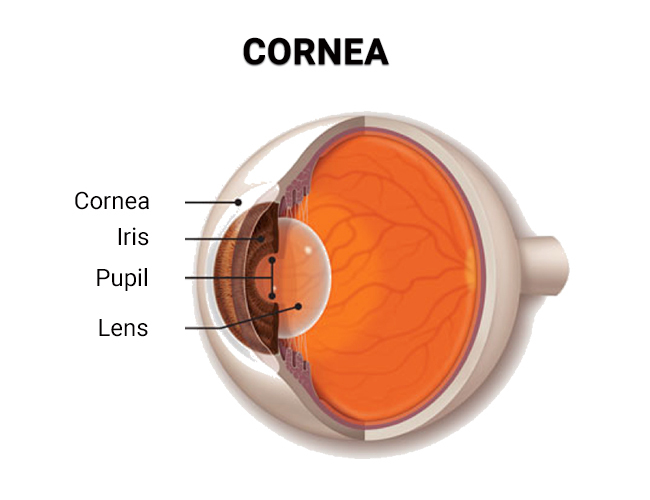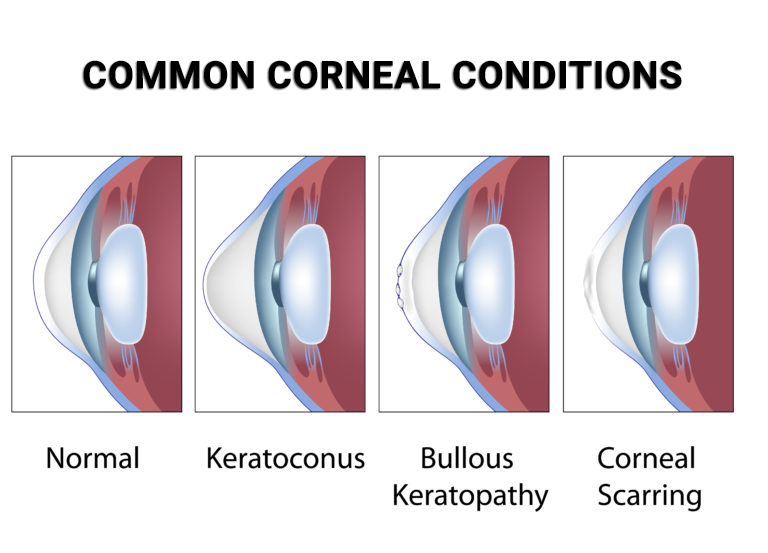 (212) 861-9797
(212) 861-9797
 (212) 861-9797
(212) 861-9797
When caught early, corneal diseases are treatable and don’t have to lead to further vision impairment. But without early intervention from an experienced ophthalmologist, corneal eye disease does lead to blindness. In fact, according to the World Health Organization, corneal disease is responsible for close to 20 million of the world’s blind population, which totals approximately 45 million. Get an early diagnosis and effective treatment to prevent blindness from the best eye doctors in New York City at Vitreous Retina Macular Consultants of New York. They have convenient locations in Brooklyn, Manhattan and Westchester. Call the experts for an appointment for you and your family to receive regular eye checkups that include testing for corneal disease and other problems affecting your vision. A trained specialist at the largest retina and ophthalmology practice in the New York Metropolitan area is your best defense against blindness.
Corneal diseases are disorders that affect the cornea of your eye. The cornea is a transparent film-like tissue covering the front of your eye. The cornea curves to refract light, working in conjunction with your lens, to help you focus. Your cornea also provides a protective tissue to shield your eye from infection and foreign particles.

Several conditions and diseases damage your cornea, but all of them have specific symptoms and available treatments. If something damages your cornea, it impacts your vision. You must get a thorough examination if you’re experiencing symptoms due to an injury, disease or infection for your eye doctor to know which disease you have and which treatment plan to pursue.
Ophthalmologists have more advanced training and education than optometrists and opticians, allowing these professionals to successfully diagnose and treat a wider variety of medical conditions that affect your eyes. Vitreous Retina Macular Consultants of New York (VRMNY) retina center has the most experienced retina specialists in-house to provide you with an accurate diagnosis and the most effective treatment.
As with most health-related issues, prevention always is the best way to avoid serious eye problems. Regular checkups allow your eye doctor to discover potential problems, like cornea disease. The common symptoms of corneal disease include:
Some of these symptoms mirror other issues, so seek a diagnosis from an expert, such as the eye doctors at VRMNY. In some cases, especially after an eye injury, you may want to first go to the nearest emergency room. Besides a direct injury, common corneal conditions include:
Dr.Engelbert has been seeing my employer, Mr. Khazaneh for about 2 years and he is very pleased and admires his professionalism. Along with his staff they provide excellent and exceptional care. Highly recommended!
RIA P. GoogleThere are many conditions that make you more susceptible to corneal disease. This vulnerability may be due to your occupation, genetic makeup or other health issues you’ve had. Conditions that may affect your cornea include:
Other factors that may have an impact on whether you contract a corneal condition include:
Some of these things you have control over, and they’re worth discussing with your eye specialist. When you learn of these dangers, you can implement a change to prevent worsening symptoms.

Corneal dystrophies are rare. These diseases tend to be hereditary and progressive. They cause a material to form on your cornea that clouds your vision. Your ophthalmologist at VRMNY may need to give you a complete dilated eye exam to make this diagnosis. More common examples of corneal diseases include:
More conservative treatments may include special eye patches, eye drops or ointments. In more aggressive cases, you may need laser or corneal transplant surgery. These are the reasons catching the condition as quickly as possible is so helpful. These dystrophies occur equally between the genders, except for Fuchs corneal dystrophy, which occurs more often in women.
As with any disease, early detection is invaluable. Many corneal diseases are asymptomatic at first. A thorough dilated eye examination is necessary to detect any eye disease. Your eye care specialist checks for various things, including:
Regularly scheduled checkups should start when you’re young, but it’s even more essential as you age. It’s recommended that you have your eyes checked every one or two years, depending on your age and existing conditions. Research has shown that as the current population ages, vision impairment and blindness will double without regular exams in less than 10 years.
The distinguished specialists with VRMNY dedicate themselves to early diagnosis and treatment. These physicians offer optimum care. They find solutions and treatments that reduce and prevent vision loss. Their practice has three convenient locations in Manhattan, Brooklyn and Westchester. Contact the closest eye care center for an appointment today.
Let us help you enjoy your life
Call: (212) 861-9797To Speak With An Appointment Coordinator Now